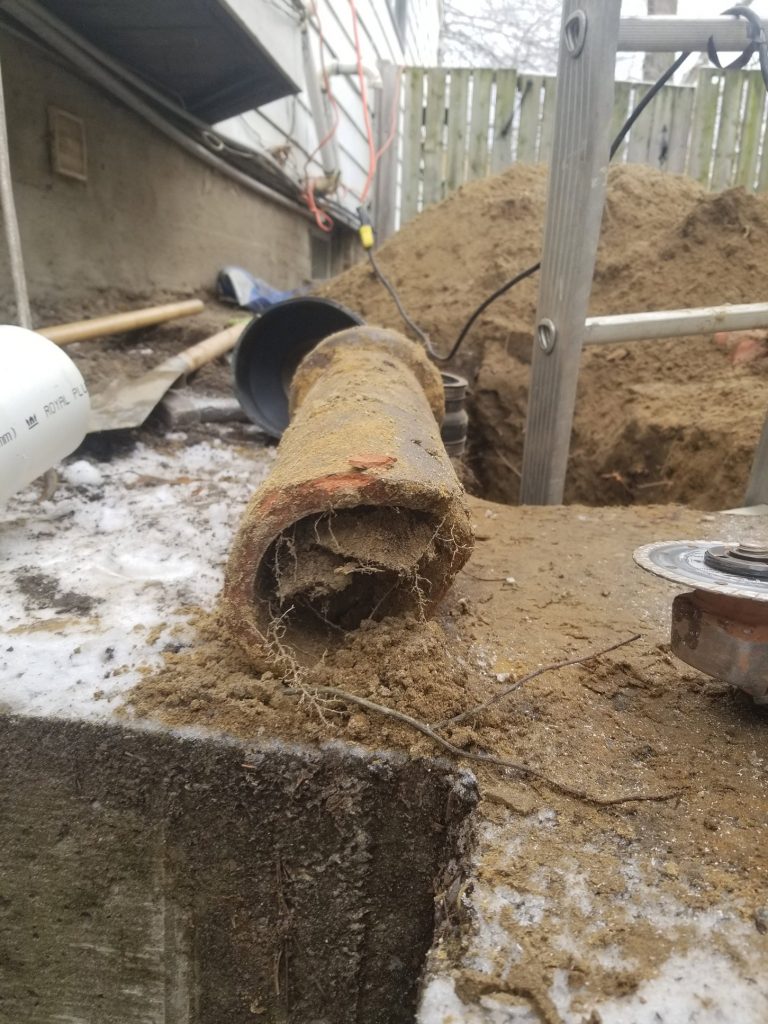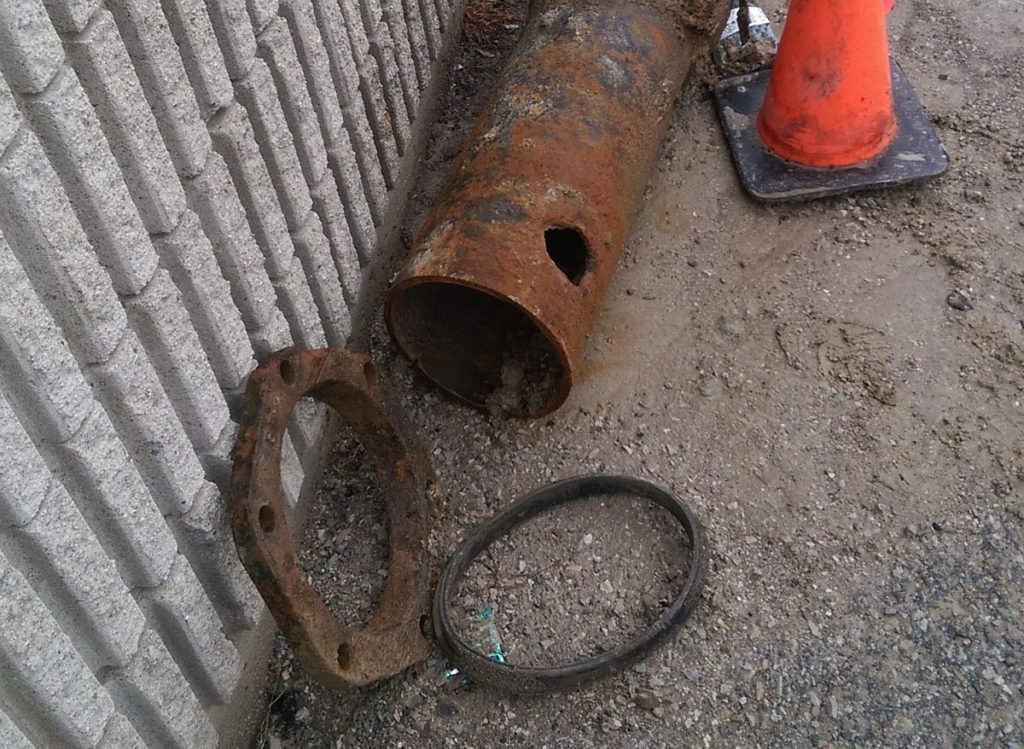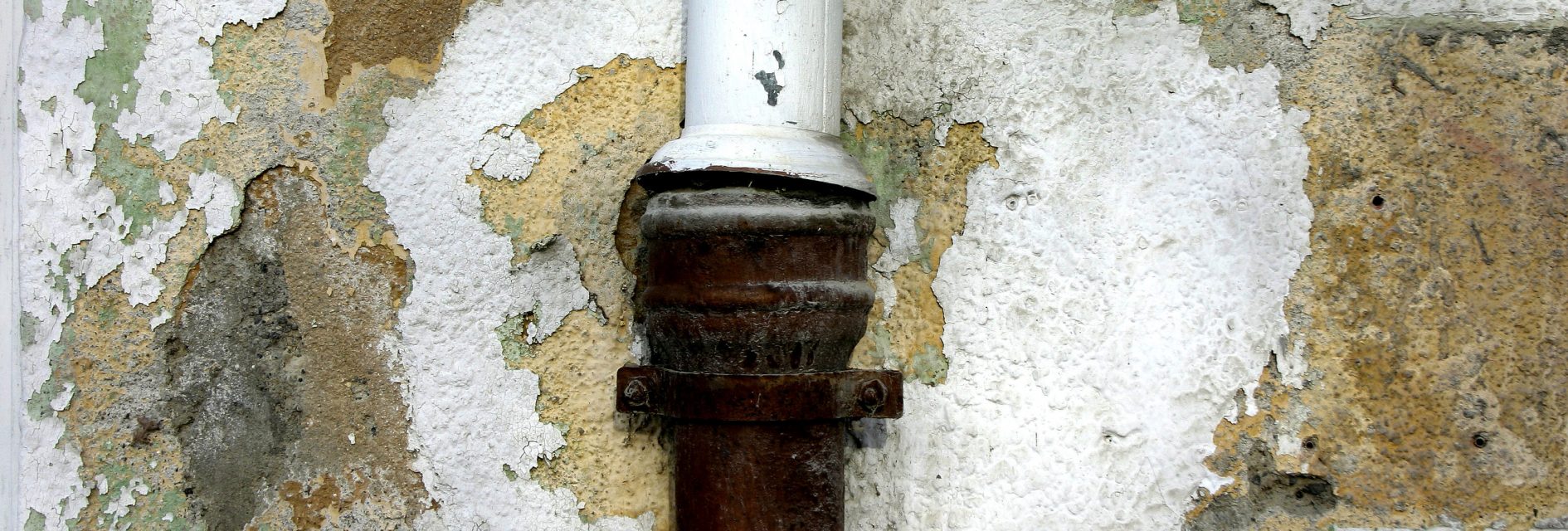Water damage to your home can be avoided with regular maintenance of your plumbing, fixtures, and drains, but in the eventuality of it happening it is best to take immediate action to prevent further damages and complications. This article aims to help you learn what you can do if faced with common water damage signs and what you can do to repair your broken pipes.
Main Drain Blockage
Before you seek a main drain repair service, consider the following questions:
- Is there a backup in your sinks and pipes?
- Are there signs of water in your basement?
- Are your drains and pipes making inexplicable noises?

All of these symptoms can arise from a clogged drain or worse from a blocked main drain. If you do not take rapid action, this clog might cause flooding, water back-up in sinks, showers and toilets, staining, mould and worse. The culprits to a main drain blockage are tree roots growing into the system or a buildup of material waste. To repair this kind of blockage and remove the clogged drains, you will need to first turn off the water at the source of the clog to ensure no more backup.
Next, call a plumbing service that is well trained in drain maintenance. Most companies offer a trenchless drain repair service which will remove the clogged drain without any intrusive digging. To prevent main drain blockages, regularly test your pipes, and have professionals provide regular drain maintenance at least once a year.
We provide an advanced camera inspection, as well, where we thoroughly evaluate your home’s plumbing, including main and sewer lines to detect early problems and prevent future damage.
Single-Drain Blockage
How to know the signs and what to do next
Is there water backup in your sinks? Are your toilets not flushing? A clogged kitchen drain, toilet or shower drain is a relatively minor event, which is quickly taken care of. While most minor clogs to your sink, toilet or shower drains can be easily cleared with a plunger or some other basic tools if you are unable to remove the clog yourself after a few attempts.
It is best to turn the job over to a professional who will clear it for you, as exerting too much force on your drains can cause permanent damage. Professionals specializing in plumbing and drain cleaning will use their knowledge to quickly and efficiently dislodge the clogs causing your drain blockage, without harming the system accidentally.
Rusted Drain Pipe
How to know the signs and what to do next
In many old homes, instead of the new non-corrosive plastics used nowadays, drain pipes are still made from the original metal materials. These galvanized pipes were installed in homes built before the 1960s and over the decades have eroded from the inside out, causing lead to accumulate within the pipes. Similarly, rusted drain pipes might corrode over time, causing holes to form and leaks to occur.

While many professionals will fix these pipes, any solution to these kinds of clogs or leaks is only temporary and will not prevent the problem from recurring as a complete drain replacement would. If your home is being affected by old and rusted drains, contact us to discuss your best options, as rusted drain repairs are only a temporary solution to the problem.
Storm Drain Blockage
Recognize the signs and what to do next
Water in your backyard area can indicate a blocked storm drain. A stormwater drain is most commonly blocked due to leaves, dirt and other natural debris becoming lodged in the pipes. Storm drain repair and cleaning is quite difficult to clear on your own, and professional plumbing service is most often the answer. A plumber will most often use a high water pressure drainage machine to clear any blocked areas.
Water Leakage
What you can do as a homeowner
If you encounter water leakage, below are a few first steps that will save your property and your health:
- Cut Water Supply: As soon as you are able to find where the leak is, it is important to cut the main water supply to limit further damage.
- Cut Electricity Supply: Water damage can also cause a short circuit or lead to malfunctioning of electrical appliances. Electrical safety is equally important to minimize loss to property and faster restoration and recovery.
- Dry Affected Areas: Wet or damp areas including carpets and floors can be a breeding ground for mould, which can have a long-term health impact on your family. As soon as possible, dry the affected areas thoroughly to avoid the possibility of mould growth.
- Disinfect the Property: If your house has been affected by flood or sewage leak then it is highly likely that contaminated water has entered your house. You may want to replace items that have come in contact with the contaminated water and it is recommended to get professional help for deep cleaning and sterilization of the house before normalcy is restored.
- Make Note of Damages: For house insurance as well as to assess the extent of damage to property, it is vital to take photos and videos plus create an inventory list with their estimated value for claim purposes.
Many homeowners will choose to DIY water damage repair in their property. However, we encourage you not to unless you 110% know what you’re doing. In case you don’t, it’s best to contact a professional plumbing service to assist you in water damage and restoration.

